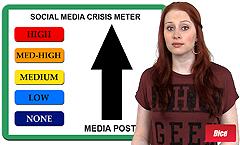 Hammurabi
Hammurabi is a classic '70s video game that has been redone dozens of times in many programming languages. It's a very simple game where you rule a city, buy and sell land, buy seed to plant the land, and feed your people. You attempt to have your city survive over many years without allowing too many of your people to die. Otherwise they kick you out and it's game over.
Hammurabi was a King of Babylon and revered, (by lawyers anyway) because he was one of the first to write a code of laws -- basically a constitution.
Hammurabi 2
The next level from running a city is to govern a country, if we skip the running the state. In this multi-player browser game for 10-100 players, you run a country and decide the policies that help you remain a dictator in power. Your policies affect:
- Economy - Grow the economy, increase population, build a booming country and expand the borders. Will you go hi-tech or agricultural, tourism or manufacturing, etc?
- Defense - Are your neighbors friendly or aggressive? How much can you afford to spend on guns instead of butter?
- Politics - Will you be Pro business, Republican, Democrat or Marxist? How will you deal with revolutions, spies, and assassins? Can you survive ten years (two five-year terms) or longer and have your country become a global super power?
Game Play
The game is made up of a number of major countries played by other players and minor countries run by computer AI. These aren't real countries but spreadsheets and your game play will adjust the figures on the sheet. Reduce the tax rate and both investments and jobs should go up. If you effectively manage your tax collections also increase. If you increase taxes you should beware of the
Laffer Curve. As a multi-player game, economies are not standalone and isolated but are affected by other countries. If your country is next to a country with a high tax rate and you lower your taxes, your country can absorb business and investment from your neighboring country.
Wars Are Bad
Wars are only good if you're an arms dealer, arms manufacturer or the winner. The game lets you start a war with a neighbour but it's an abstract part of the game. You decide how much money to spend on it (increasing national debt is possible). Unless the war is won quickly, it will drag on and your popularity (politically) will fall. Also you have to decide the size of your military and it takes a turn (a year) to change size.
Random Events
I'm not a great fan of having many random events but real life is unpredictable. You might want to build up a list of random events that can affect game play. Some examples from real life:
- Reunification. A very poor neighboring minor country can decide they want to be reunited (like East and West Germany). That's an expensive process.
- Narco Wars. If a neighboring country becomes a narcocracy and the crime rate of your country has become affected by drug gangs, do you declare a war on drugs?
- An international terrorism group has declared war on you and your citizens. Do you ramp up internal security to 11 and become a police state? What would that do to your popularity if you don't react to it?
Winning
To win, your country needs to capture other countries (minor and major) so that 25 percent of the world is yours. You can also form alliances with other more than 50 percent of the world's countries for an alliance victory.
Chris Crawford, a famous game designer had a game called "The Global Dilemma: Guns & Butter" which was similar to the idea but more tactical so I don't claim any originality!
 Hammurabi is a classic '70s video game that has been redone dozens of times in many programming languages. It's a very simple game where you rule a city, buy and sell land, buy seed to plant the land, and feed your people. You attempt to have your city survive over many years without allowing too many of your people to die. Otherwise they kick you out and it's game over. Hammurabi was a King of Babylon and revered, (by lawyers anyway) because he was one of the first to write a code of laws -- basically a constitution.
Hammurabi is a classic '70s video game that has been redone dozens of times in many programming languages. It's a very simple game where you rule a city, buy and sell land, buy seed to plant the land, and feed your people. You attempt to have your city survive over many years without allowing too many of your people to die. Otherwise they kick you out and it's game over. Hammurabi was a King of Babylon and revered, (by lawyers anyway) because he was one of the first to write a code of laws -- basically a constitution.



